第53章 CHAPTER XV Tom Towers, Dr Anticant, and Mr Sentime
'Ah, Bold! how are you? You haven't breakfasted?'
'Oh yes, hours ago. And how are you?'
When one Esquimau meets another, do the two, as an invariable rule, ask after each other's health? is it inherent in all human nature to make this obliging inquiry? Did any reader of this tale ever meet any friend or acquaintance without asking some such question, and did anyone ever listen to the reply?
Sometimes a studiously courteous questioner will show so much thought in the matter as to answer it himself, by declaring that had he looked at you he needn't have asked; meaning thereby to signify that you are an absolute personification of health: but such persons are only those who premeditate small effects.
'I suppose you're busy?' inquired Bold.
'Why, yes, rather; or I should say rather not. I have a leisure hour in the day, this is it.'
'I want to ask you if you can oblige me in a certain matter.'
Towers understood in a moment, from the tone of his friend's voice, that the certain matter referred to the newspaper.
He smiled, and nodded his head, but made no promise.
'You know this lawsuit that I've been engaged in,' said Bold.
Tom Towers intimated that he was aware of the action which was pending about the hospital.
'Well, I've abandoned it.'
Tom Towers merely raised his eyebrows, thrust his hands into his trowsers pockets, and waited for his friend to proceed.
'Yes, I've given it up. I needn't trouble you with all the history; but the fact is that the conduct of Mr Harding--Mr Harding is the--'
'Oh yes, the master of the place; the man who takes all the money and does nothing,' said Tom Towers, interrupting him.
'Well, I don't know about that; but his conduct in the matter has been so excellent, so little selfish, so open, that I cannot proceed in the matter to his detriment.' Bold's heart misgave him as to Eleanor as he said this; and yet he felt that what he said was not untrue. 'I think nothing should now be done till the wardenship be vacant.'
'And be again filled,' said Towers, 'as it certainly would, before anyone heard of the vacancy; and the same objection would again exist. It's an old story that of the vested rights of the incumbent; but suppose the incumbent has only a vested wrong, and that the poor of the town have a vested right, if they only knew how to get at it: is not that something the case here?'
Bold couldn't deny it, but thought it was one of those cases which required a good deal of management before any real good could be done. It was a pity that he had not considered this before he crept into the lion's mouth, in the shape of an attorney's office.
'It will cost you a good deal, I fear,' said Towers.
'A few hundreds,' said Bold--'perhaps three hundred; I can't help that, and am prepared for it.'
'That's philosophical. It's quite refreshing to hear a man talking of his hundreds in so purely indifferent a manner.
But I'm sorry you are giving the matter up. It injures a man to commence a thing of this kind, and not carry it through.
Have you seen that?' and he threw a small pamphlet across the table, which was all but damp from the press.
Bold had not seen it nor heard of it; but he was well acquainted with the author of it--a gentleman whose pamphlets, condemnatory of all things in these modern days, had been a good deal talked about of late.
Dr Pessimist Anticant was a Scotchman, who had passed a great portion of his early days in Germany; he had studied there with much effect, and had learnt to look with German subtilty into the root of things, and to examine for himself their intrinsic worth and worthlessness. No man ever resolved more bravely than he to accept as good nothing that was evil; to banish from him as evil nothing that was good.
'Tis a pity that he should not have recognised the fact, that in this world no good is unalloyed, and that there is but little evil that has not in it some seed of what is goodly.
Returning from Germany, he had astonished the reading public by the vigour of his thoughts, put forth in the quaintest language. He cannot write English, said the critics. No matter, said the public; we can read what he does write, and that without yawning. And so Dr Pessimist Anticant became Popular. Popularity spoilt him for all further real use, as it has done many another. While, with some diffidence, he confined his objurgations to the occasional follies or shortcomings of mankind; while he ridiculed the energy of the squire devoted to the slaughter of partridges, or the mistake of some noble patron who turned a poet into a gauger of beer- barrels, it was all well; we were glad to be told our faults and to look forward to the coming millennium, when all men, having sufficiently studied the works of Dr Anticant, would become truthful and energetic. But the doctor mistook the signs of the times and the minds of men, instituted himself censor of things in general, and began the great task of reprobating everything and everybody, without further promise of any millennium at all. This was not so well; and, to tell the truth, our author did not succeed in his undertaking. His theories were all beautiful, and the code of morals that he taught us certainly an improvement on the practices of the age. We all of us could, and many of us did, learn much from the doctor while he chose to remain vague, mysterious, and cloudy: but when he became practical, the charm was gone.